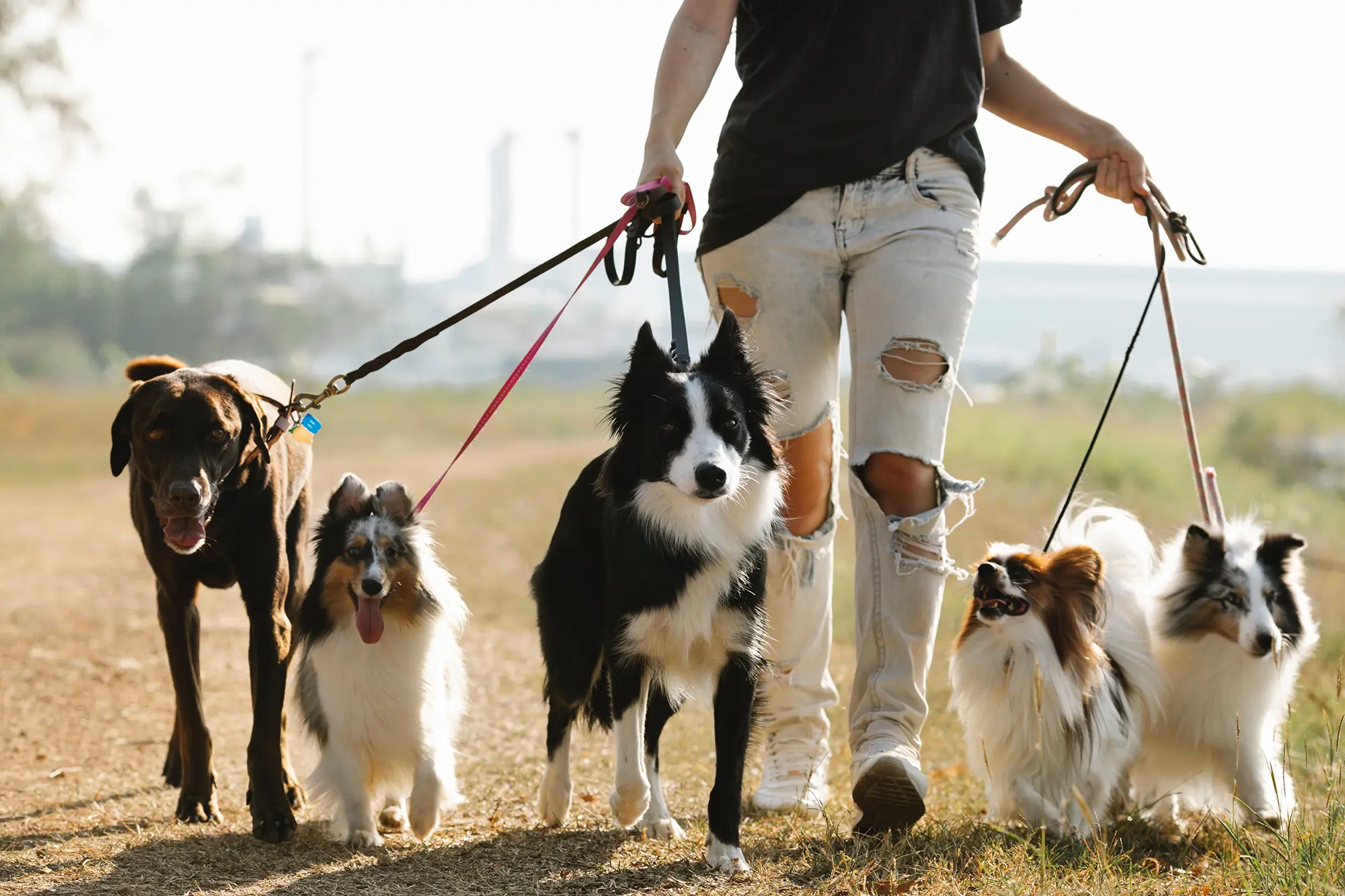signs your dog is unhealthy
Author: PawPots Team
 09 Dec 2024
09 Dec 2024
 5 min
5 min As a pet parent, you want your furry friend to stay happy and healthy. But dogs can’t tell us when they feel unwell. Instead, they show signs through their behavior, posture, or even subtle changes in their routine. Spotting these signs early can make a big difference in your dog’s health and well-being.
1. Frequent Stretching: Could It Be Pancreatitis?
Dogs love to stretch, but if your pup is doing it more than usual—especially stretching forward with their belly close to the ground—it could indicate pancreatitis. This condition is inflammation of the pancreas, which can cause abdominal pain and discomfort. If your dog’s stretching seems unusual, watch for other signs like vomiting, diarrhea, or loss of appetite, and contact your vet.
2. Dragging Their Bottom: Anal Gland Issues or Parasites?
Does your dog drag their rear end across the floor? This behavior, known as scooting, could mean they have:
Intestinal parasites like tapeworms.
Anal gland inflammation or impaction, which happens when the glands near the anus are blocked.
Both conditions are uncomfortable for your dog and need veterinary attention. Routine deworming and anal gland checks can help prevent this.
3. Coughing: Kennel Cough or Something More Serious?
A dog that coughs occasionally isn’t usually a cause for concern. But frequent or persistent coughing could point to:
Kennel cough, a common respiratory infection.
Heart problems, especially in older dogs.
Allergies or irritants, such as smoke or dust.
If your dog is coughing often, consult your vet for a thorough checkup. Treating the cause early can save your dog from prolonged discomfort.
4. Frequent Scratching: Parasites or Skin Diseases?
If your dog is scratching constantly, it’s time to investigate. The itchiness could be due to:
Fleas or ticks, which can be spotted by parting your dog’s fur.
Skin allergies caused by food, pollen, or chemicals.
Skin infections or conditions like mange.
Scratching might seem harmless, but untreated skin issues can escalate quickly. Regular grooming and parasite prevention can go a long way in keeping your dog comfortable.
5. Hopping Like a Lamb: Arthritis or Patellar Luxation?
When your dog runs or walks, do they hop on one leg, almost like a lamb? This could be a sign of:
Arthritis, especially in older dogs.
Patellar luxation, a condition where the kneecap slips out of place, often seen in small breeds.
Both conditions can cause pain and mobility issues if left untreated. A vet visit can determine the cause and suggest treatments, including supplements, weight management, or medication.
6. Frequent Ear Scratching: Ear Mites or Infections?
Dogs scratching their ears or shaking their heads often might have:
Ear mites, tiny parasites that cause intense itching.
Otitis externa, an ear infection often caused by bacteria, yeast, or allergies.
Look for redness, discharge, or a foul smell in your dog’s ears. Proper ear cleaning and early treatment can prevent these problems from worsening.
7. Changes in Appetite or Weight
An unhealthy dog may suddenly lose interest in food or seem ravenously hungry without reason. Significant weight gain or loss can signal:
Metabolic issues, such as diabetes or thyroid problems.
Gastrointestinal diseases.
Always monitor your dog’s eating habits, and reach out to your vet if you notice drastic changes.
8. Lethargy or Low Energy
Dogs have off days, but consistent low energy or reluctance to play can indicate:
Pain, such as from an injury or arthritis.
Infections, including tick-borne diseases or viral illnesses.
Depression, especially if your dog has recently experienced a major change, like a new home or loss of a companion.
Lethargy is a non-specific sign but should never be ignored, especially if it persists for more than a day or two.
9. Unusual Odors
A foul smell isn’t just unpleasant—it can be a sign of underlying health issues. Common culprits include:
Dental disease, causing bad breath.
Skin infections, leading to a musty odor.
Ear infections, with a yeasty or pungent smell.
Regular grooming, dental care, and vet checkups can help keep odors (and their causes) at bay.
10. Vomiting or Diarrhea
Occasional stomach upset happens, but frequent vomiting or diarrhea could mean:
Dietary indiscretion (eating something they shouldn’t have).
Parasites, such as worms or protozoa.
Serious illnesses, like parvovirus or liver disease.
Hydration is critical if your dog has digestive issues. Contact your vet promptly, especially if symptoms persist or worsen.
How to Keep Your Dog Healthy
Preventing health issues is always better than treating them. Here are some tips for maintaining a healthy dog:
Routine Vet Visits: Regular checkups catch problems early.
Balanced Diet: Feed your dog a nutritious diet, like fresh food options from brands like PawPots, to support overall health.
Exercise and Play: Keep your dog active to maintain a healthy weight and strong joints.
Grooming: Regular baths, nail trims, and ear cleaning help prevent infections.
Parasite Prevention: Use flea, tick, and worm preventatives as recommended by your vet.
Fresh Food for Your Dog
When in Doubt, Consult Your Vet
If you notice any of these unhealthy dog signs, don’t wait for the problem to resolve on its own. A quick vet visit can make all the difference in diagnosing and treating the issue before it becomes serious.
Remember, keeping your dog healthy isn’t just about watching for problems—it’s about building a lifestyle that promotes their well-being. With proper care and attention, you can ensure your furry friend stays by your side, happy and healthy, for years to come.

Give Back The Love
Show your love to your pets with our high-quality, delicious and healthy meals! Show your love to your pets with our high-
quality, delicious and
healthy meals!




